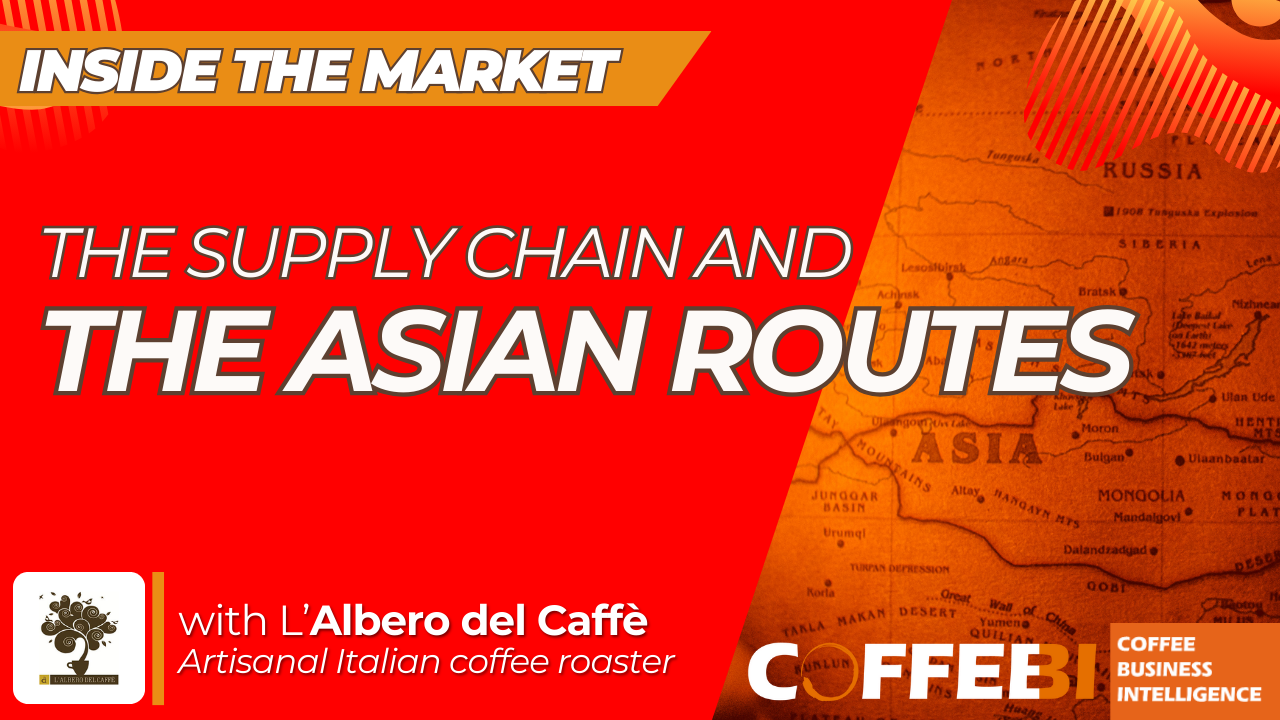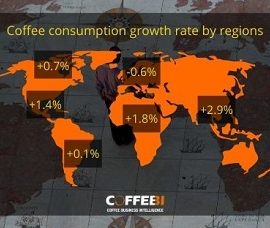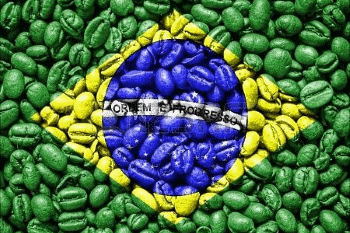The Coffee Asian routes and the Supply chain
“Inside the Market” is a miniseries focused on the coffee market, providing a firsthand perspective from industry operators. In the third and final episode curated by “L’Albero del caffè”, this Italian artisanal roasting company guides us through the complex world of the coffee supply chain. It examines the geopolitical factors influencing coffee from the perspective of a small roaster.
The Challenges of the Supply Chain and the Robusta Bubble

The coffee supply is currently experiencing a critical phase. However, it’s important to clarify that, aside from temporary shortages due to extended logistics times from Africa and Asia to Europe – a consequence of the Suez canal issues – the availability of Arabica coffee should not be a problem. Despite the Brazilian domestic market’s shift towards soluble products, which now use lower-grade Arabica instead of historically used Conillon, the global production is increasing, and availability remains good.
The stock exchange is high but not excessive. The only problem I see, but not in the short term, is the increase in domestic consumption of producing countries and new consumer countries that could, due to ongoing geopolitical dynamics, strengthened by the recent EUDR law against deforestation, make significant lots of green coffee unavailable.
The situation for Robusta is different. The issue is not so much the price, although it did reach record levels despite the recent downturn. The main concern is the product’s availability. Small Asian and African farmers are withholding the latest coffee harvest, hoping to maximize their return.
When the “bubble bursts” and this type of coffee becomes available again (since the past harvest exceeded global demand), a significant portion of the product could be irretrievably spoiled.
I cannot predict the exact consequences of this event, but it could potentially have the same impact on supply chain management as the crisis of the early 2000s.
The Asian routes
From a logistical perspective, China is significantly integrated with most global ports. Regarding the African route, the maritime silk route navigates through the Suez Canal. Over the past few decades, investments have primarily been directed towards the eastern coast of the African continent.
From a geopolitical perspective, it’s clear that the world’s balance is increasingly shifting towards the east. This shift could significantly affect the cost of commodities transported by sea from Asia to Europe.
From the perspective of the coffee industry, significant changes have occurred in the last three years in certain regions. These regions, which have traditionally offered large quantities of coffee at relatively low prices, include Vietnam, India, and Indonesia.
In a trend begun in the Covid-19 period, the availability of product for export continues to compete with the need for internal consumption of product, not only the well-known Indian and Indonesian reality (this, moreover, characterized by two consecutive years of smaller harvest), but also China whose consumer market is growing at dizzying rates in numerical terms, requiring a level of supply that is only partly covered by local production.
Last year, Vietnam’s policy of not exporting Robusta disrupted the market. This allowed Brazil to seize the opportunity and saturate international markets with Conillon. Meanwhile, the local industry substituted Robusta with Arabica, a lower-quality variant used for soluble coffee, temporarily upsetting the country’s internal dynamics. It remains to be seen what direction the coffee industry will take in the next harvest, and how this will affect Asia’s role in coffee availability.
With the London Stock Exchange at a record high, unprecedented spreads, and nearly depleted port inventories, China – the global leader in sea logistics – can envisage a future where it assumes a dominant role and capitalizes on this position.



